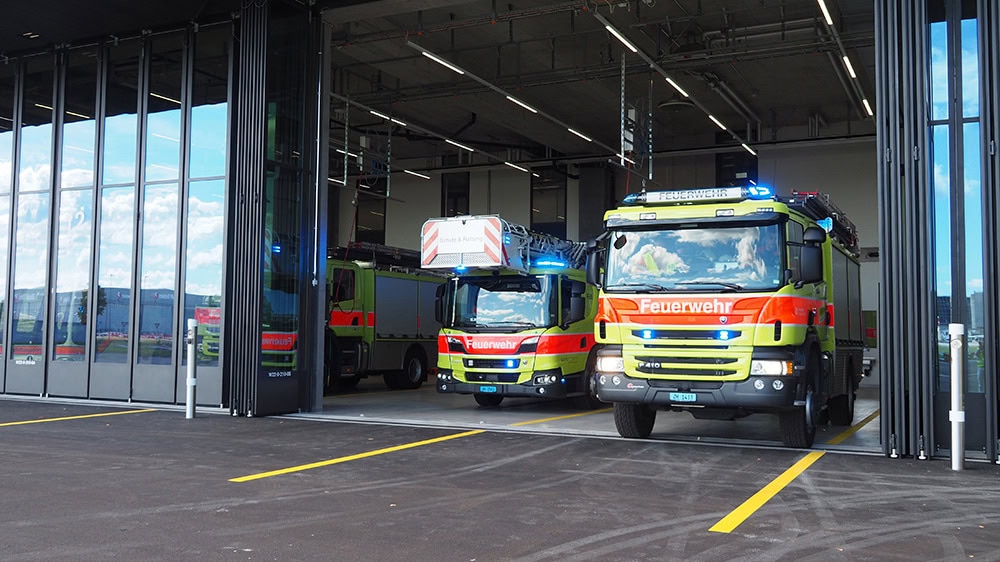GVZ launches pilot project with alternative fuel
GVZ Gebäudeversicherung Kanton Zürich is testing the use of hydrotreated vegetable oil (HVO) in fire engines as part of a pilot project with five fire departments. This alternative fuel has a significantly better environmental footprint than diesel fuel and has been proven to help reduce greenhouse gas emissions. The project is scheduled to run until the end of 2025.

Schutz & Rettung Zurich, the Kloten and Wallisellen fire departments, the Männedorf-Uetikon fire department and the St. Gallen professional fire department have been refueling some of their vehicles with HVO, or in other words, hydrogenated vegetable oil, since the end of August. The biofuel is produced from used cooking oils and fats from restaurants or residual materials from the food industry, for example.
28‚000 liters procured
The GVZ supports Zurich's fire departments with vehicle procurement, while a designated technical working group continuously analyzes developments in climate-neutral drive options and makes recommendations to the fire departments.
As part of the HVO pilot project, GVZ procured 28,000 liters of fossil-free fuel and had them delivered to the five fire departments. They have their own refueling systems, which is why they are predestined for the project. In order to relieve the burden on the participating fire departments when using HVO, GVZ will cover the difference to the current diesel price for the Zurich fire departments for the duration of the pilot.
Renato Mathys, Head of Fire Service at GVZ, says: "We would like to thank the five fire departments for their participation in this promising project and look forward to the initial results. Our aim is to make a contribution to improving the environmental footprint of fire engines."
Reducing emissions without expensive retrofitting
The fuel can be used pure or mixed with regular diesel in any ratio. Diesel engines do not have to be expensively converted, but can be operated and maintained according to the same plan as when running on diesel fuel. Jonathan Bösch, Vehicle Procurement Specialist at GVZ, sees further advantages of HVO in its high energy density and storage stability. In addition, the raw materials used do not take up agricultural land or compete with foodstuffs.
Source: www.gvz.ch









